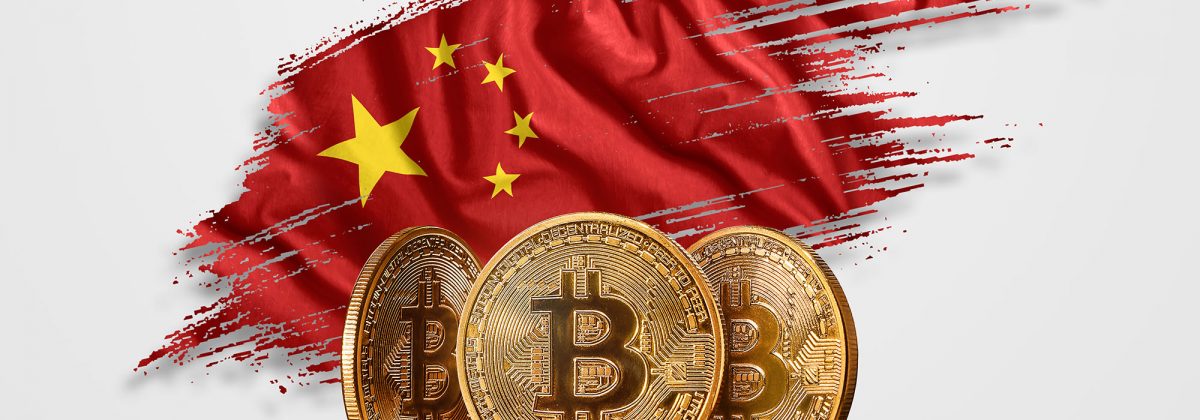China Plans to Launch its Central Bank Cryptocurrency

What would happen if we were to combine the best of cryptocurrency technology with qualities of an established fiat currency, with the approval of a central bank? It might bring in a new era of handling transactions, with the potential to reduce costs and errors, while improving the speed of transactions. Privacy and anonymity will be maintained, without the need for a centralised authority to oversee day-to-day operations. The result could truly be transformational.
The debate regarding state-backed cryptocurrencies has been at the forefront for some years now. Proponents of state-back crypto argue that such digital currencies will not necessarily replace fiat currency in its entirety. What they will achieve is the ability to offer consumers the option to choose the most appropriate currency for a particular transaction, one that has the best exchange rate.
Some countries have developed or are in the process of developing their own national cryptocurrency. But, none of them are as large an economy as China.
China’s State Sponsored Cryptocurrency Plans
The People’s Bank of China (PBoC) has been dropping major hints through 2019 about launching a digital version of its currency, the Renminbi. Although there has been no official date announced yet, there are possibilities of a launch by 2020. The aim is not only to reduce physical cash transactions for consumers, but also to “protect” the country’s foreign exchange sovereignty.
It ultimately lays a foundation for the internationalisation of the Yuan. The mechanism will enable the use of China’s domestic currency in everyday transactions, globally. Currently, the US Dollar is the world’s reserve currency, with 58% of all global forex reserves denominated in terms of the greenback. Beijing has for years been trying to decrease its dependency on the USD, while making its domestic currency more powerful. The digital currency plan is a big step towards this goal.
Facebook’s Libra Gives a Scare
China has been mulling a digital currency, backed by the PBoC, since early 2014. But, experts believe that the launch of Facebook’s Libra has driven Chinese officials to move forward with their plans.
In June 2019, the multi-billion-dollar social media giant unveiled Libra, a digital currency, backed by short-term government securities and bank deposits, including a basket of major currencies. The platform is being designed to enable billions of people around the world to make online transactions, with nearly zero fees.
PBoC is closely watching the developments in the Libra blockchain. It has significant worries about how the coin would impact the global financial system, when it does take off. The major concern, however, is the close association of Libra with the US Dollar. Chinese officials are likely worried that Libra would reinforce the influence of the US Dollar on the global financial system, since the USD occupies 50% of the basket of fiat currencies backing the alt coin.
A Two-Tiered Distribution Framework
According to the plans outlined by PBoC in August 2019, the Chinese cryptocurrency will be launched in a two-tier process. The Central Bank will manage and guarantee the cryptocurrency, before issuing it to commercial banks and other institutions, who will then distribute it to the consumer.
The currency will replace M0 (cash in circulation), but not M2, which is China’s broadest indicator of money supply, including savings and term deposits. This is to prevent the nation’s monetary policy from being impacted in any way. It is being touted that the crypto will not rely entirely on blockchain, as it might not be able to handle the huge volume of transactions in a highly-populated nation like China.
Chinese officials have maintained that the currency will have features similar to Libra. It would be as safe as PBoC-issued fiat money and could even be used on platforms such as Tencent’s WeChat, without internet connectivity.
Regulated Access to Seven Major Institutions
Major names figure on the list of probable first tier recipients. They include the Industrial and Commercial Bank of China, Bank of China, Agricultural Bank of China, Alibaba, Tencent and Union Pay, which is an association of Chinese banks.
November 11, 2019, is the busiest online shopping day in the country, also known as “Singles’ Day.” If reports are to be believed, the cryptocurrency will be launched on this date, where recipient institutions will distribute the currency to Chinese citizens, as well as others doing business in the domestic currency, Yuan.
Digital Currency from a Nation That Detests Cryptocurrencies
China is known for its harsh and relentless crackdowns on any form of private or decentralised digital assets. It has, in the past, disallowed many companies from conducting ICOs and even stopped exchanges from operating on its shores. Since 2013, Chinese financial institutions have been banned from holding cryptocurrencies, and even individuals find it difficult to hold Bitcoin in China.
Given this history, the idea of the country choosing to launch its own digital currency sounds incongruous. But the strategy has actually been in place to reduce public demand for other crypto assets. China wants to ensure that its Central Bank has control over the monetary policies that affect the currency.
Also important has been the need to reduce liquidity risks posed by large commercial companies like Alibaba and Tencent. The platforms could go bankrupt, causing people to lose money, which is why a state-backed digital currency becomes essential.
Also a Currency Manipulator
However, the impact on these major commercial companies and banks remain unclear. Also unclear is whether anyone outside China can use its digitised version of the Renminbi, in their own country. There is a strong perception of the nation being a currency manipulator. In August 2019, the Chinese Yuan fell to its lowest levels against the US Dollar, for the first time in 11 years, which led to the US accusing China of currency manipulation. Although China has denied these allegations, its ongoing trade war with the US is a big global threat.
If the Chinese Yuan holds at the current level, the US might not take further action. But, if the Yuan is further pushed down in value against the US Dollar, theoretically, the United States could intervene in the foreign exchange market to push the Yuan’s value up. Such a move is unprecedented, and the US needs significant funds to implement it. And, an extended trade war might not gel well with the adoption of China’s digital currency.
Reference Links
- https://www2.deloitte.com/us/en/pages/consulting/articles/state-sponsored-cryptocurrency-adpating-bitcoin-innovation.html
- https://www.technologyreview.com/f/614314/china-is-about-to-launch-its-own-digital-currency-heres-what-we-know-so-far/
- https://www.caixinglobal.com/2019-09-10/china-readies-for-digital-currency-launch-101461008.html
- https://www.cnbc.com/2019/09/13/chinas-new-cryptocurrency-and-yuan-rmb-internationalization.html
- https://www.forbes.com/sites/michaeldelcastillo/2019/08/27/alibaba-tencent-five-others-to-recieve-first-chinese-government-cryptocurrency/#15d5a2a51a51









